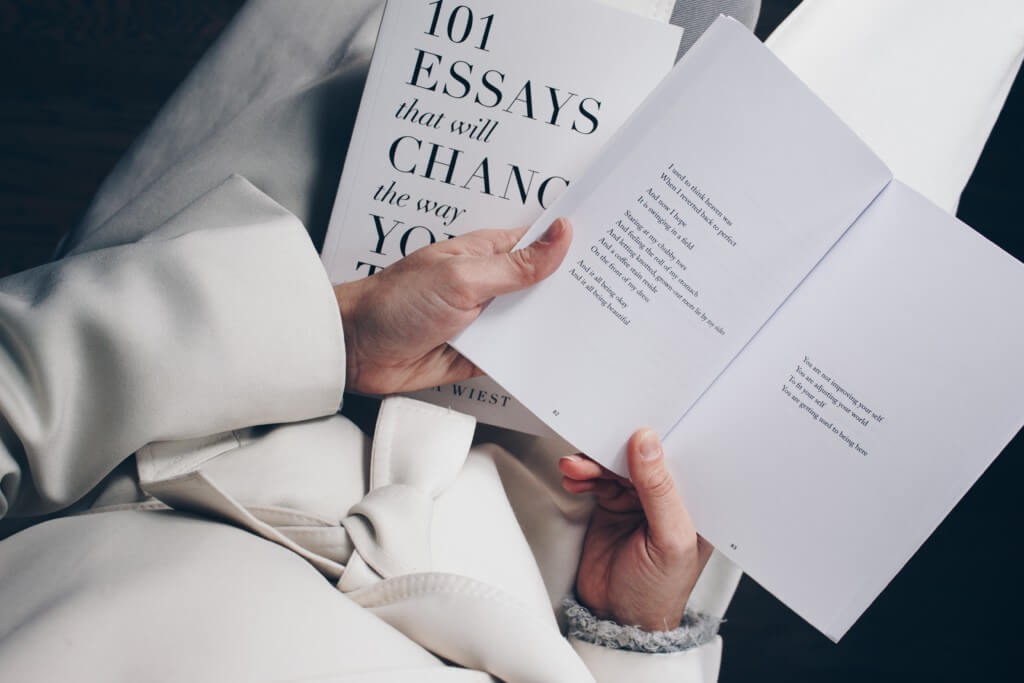The daunting task of listening to others critique your creative work, especially if in a genre unfamiliar to you, definitely has its hardships. The unfamiliarity shouldn’t leave you with the desire to avoid the class. The University of Iowa, famous for their creative writing classes, can easily fill a list for beneficial reasons to take a creative writing class. The freedom to express your creative side and evolve as a writer encompasses the importance of these classes. But how does one excel in a class that seems based on interpretation? Although not shared on the syllabus, unshared do’s and dont’s exist so you don’t have to feel like your work is being judged for the Nobel Peace Prize.
Here are 10 rules to get through your first creative writing class at the University of Iowa.
1. Participation Matters

Workshop is the foundation to creative writing classes at the University of Iowa. In an inclusive environment, workshop encourages critique, complements and reflection on peers work. The classroom is meant to set an open conversational tone that inspires rather than discourages fellow students. You’ll often find fellow students tips to be very helpful. Don’t hold back when it comes to helping enhance their work. “Be helpful but don’t be an a–hole,” said senior Brie Baugher. Consider how you phrase your advice. Is it helpful in a way that will better their writing or just an insult? Are you contributing to the conversation about someone else’s piece as much as you would hope they are when workshopping yours? Workshop is dependent on how you choose to engage in class. Value the time spent discussing your work and always reciprocate to other students.
2. Don’t be Afraid to Take Risks

Restricting ourselves in creative writing commonly occurs at college. Although it may feel safe to create a little box that keeps your crazy creative side at bay it’s important to push that boundary. “Don’t be afraid to take risks, because that’s how you create the best writing through taking risks,” said junior Katie Schumaker. Be bold in your writing. If writing something sparks interest or gives your body a bit of an adrenaline high, that’s probably a good sign. Step out of your comfort zone and write about something important to you.
3. Be Open to Critique

It’s easy to dish it out but when the workshop turns to your piece, fellow students’ comments are often surprising. Acknowledging that these critiques are not insults but advice given to you by people who truly want your writing to excel will lighten the blow when it feels like not everyone is a huge fan of your work. “It can be hard to handle critique but its important to improve what you are trying to write and sometimes you get caught up in what you are saying,” said junior James Cummings. Although what you’ve written may seem perfectly clear to you, it most likely doesn’t mean everyone else feels that way. Revision, the key to creative writing, pushes the evolution of your piece into its final masterpiece. Rejecting a critique puts a stop to the growth of your writing.
4. Discover you Sensibilities as a Writer

An exhilarating moment will occur when you hone in on moments when you feel the writer’s work is at its best. It’s when words move you that you should take pause. Let creativity buzz into productivity when you find out what works best for you through others work. Take note of these moments to discover what tools you valued in their piece that you could use in your own writing. “I think a big goal of creative writing classes is not just writing, but discovering your own sensibilities as a writer, and seeing yourself and your writing from the outside. Noting what you love and attempting to figure out why helps you try these words, sentence structures, and ideas on later, and seeing if they add to your approach,” said University of Iowa Provost Visiting Writer Lucy Schiller. An active reader leads to a progressive writer.
5. Branch out Beyond what’s Assigned in Class

We all love when teachers pile on the reading assignments right? When the course work calls for a second binder, skimming the reading feels like the best option. Oddly enough, skimming makes the work much harder to complete. Make it entertaining by annotating books with your favorite pen and cute doodles that take you back to days when colored pencils and food shaped erasers were worth collecting. Take pause when you read something that strikes you and don’t be afraid to ask for more sources to learn from. Setting an environment that you enjoy makes reading a lot more bearable and maybe even enjoyable. It can be confusing to navigate through the literary world but by participating beyond what’s on the syllabus will make class interesting and you’ll have a better grasp on the work assigned.
6. Talk one on one with your Teacher

Creative writing courses, especially during workshop, can be overwhelming. With only a couple of hours each class, information can seem like it’s being thrown at your face. It can feel like a whirlwind of advice and critique given to you all at once. Setting a time to meet with your teacher, preferably planned, allows for the opportunity to truly take time to look at the piece one on one. Getting to the root of your writing and working on it beyond workshop will better your writing.
7. Nobody is an Expert

Experts do not exist in creative writing. It doesn’t matter if you’re the student who’s confident they’re going to ace the class, or the student who’s a bit nervous about sharing their creative writing with fellow students. Writing is a continual lesson with new discoveries along the way. Going into class assuming other students won’t be helpful to your fabulous writing takes away a lot of the benefits theses classes offer. If you’re a bit nervous, remember that you’re all trying to figure it out. Creative writing isn’t objective so there isn’t a right or wrong way to show your work. Writing with passion and not with an audience in mind will guarantee purposeful writing.
8. Enjoy the Literary Community

Getting involved outside of class encourages creativity when things are lagging or your feeling a bit of a writer’s block. Attending readings at Prairie Lights while sipping a warm cup of tea always helps. Writers often reflect on their process while working on their books. Hearing from others who may have been in your exact position will leave you feeling refreshed. Stepping outside of your comfort zone is also great when in need of a refresher. Doing things out of your routine or at your usual spots will feel like testing a new hiking trail. A new discovery with unexpected turns awakens the creative mind. Open mic nights can help you get something out there and great practice when in need of a confidence boost. Take a support group with you, dress up and share work that makes you proud. Post open mic buzz will leave you elated and ready to take on your next writing challenge.
9. Accept that some people won’t like your work

Critique can come with insults that inevitably hits your sore spots but this should never discourage you from sharing your work. Not everyone will like your style, and you shouldn’t try to write to please your fellow students. A student disliking your work is unavoidable but the purpose of the class shouldn’t focus on how peers feel about your writing. This doesn’t mean, of course, to reject advice.
10. Express your Authentic Self

It’s the classic advice applied to everything—just be you. The best way to enjoy a class is to stay true to who you are and don’t be afraid to reach out to the students around you. Chances are they’re a bit nervous too. “Write what you want to write. Don’t try to impress anyone. You’re here to improve yourself,” said senior Tashmit Khan. Being comfortable in your environment will make participating easier and help you open up, pushing the boundaries with your writing. When you write for an audience you restrain from the best part of quality writing. A passionate voice impacts a reader much more than a generic story that could be written by anyone.



















